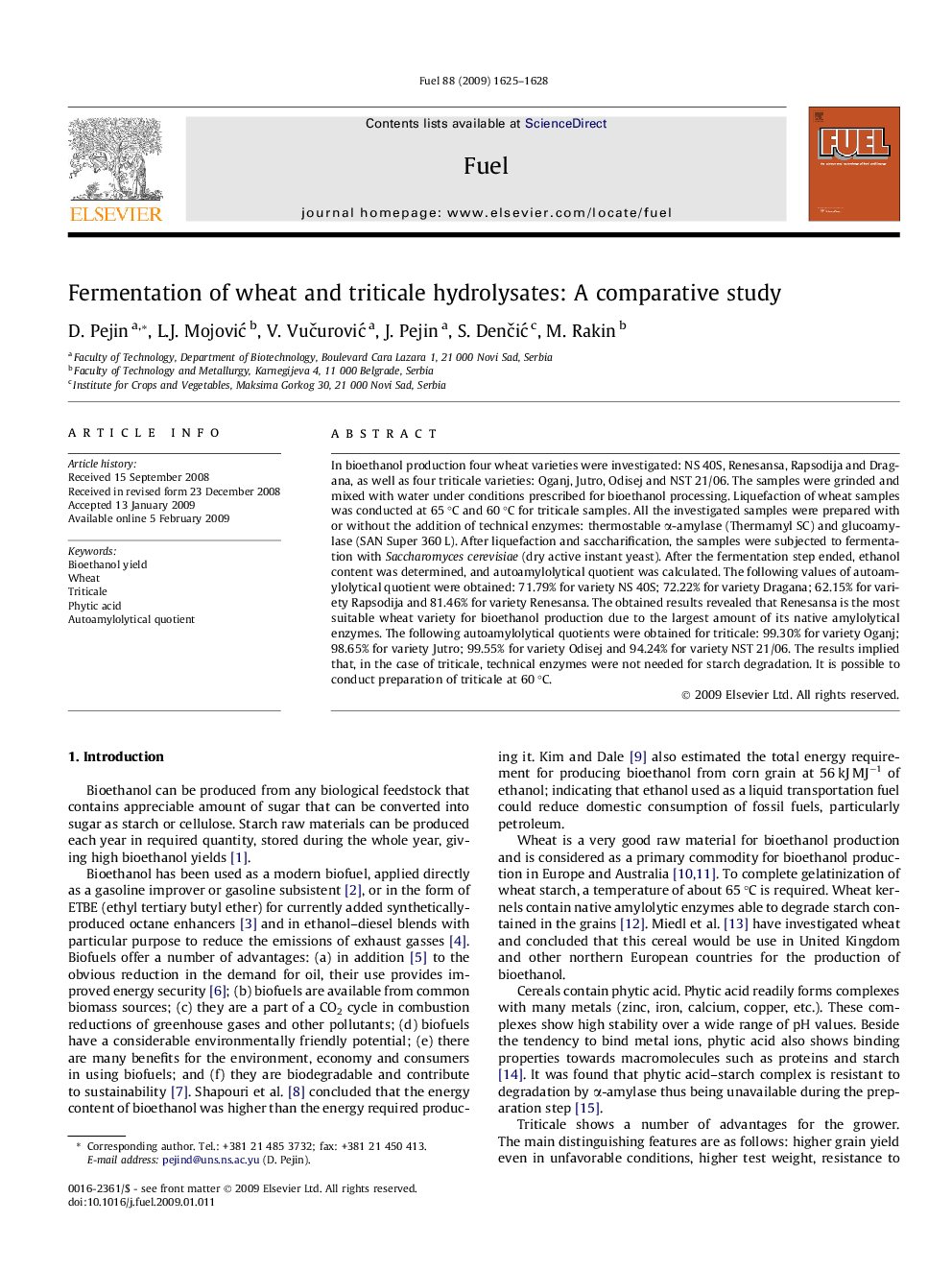| Article ID | Journal | Published Year | Pages | File Type |
|---|---|---|---|---|
| 207117 | Fuel | 2009 | 4 Pages |
In bioethanol production four wheat varieties were investigated: NS 40S, Renesansa, Rapsodija and Dragana, as well as four triticale varieties: Oganj, Jutro, Odisej and NST 21/06. The samples were grinded and mixed with water under conditions prescribed for bioethanol processing. Liquefaction of wheat samples was conducted at 65 °C and 60 °C for triticale samples. All the investigated samples were prepared with or without the addition of technical enzymes: thermostable α-amylase (Thermamyl SC) and glucoamylase (SAN Super 360 L). After liquefaction and saccharification, the samples were subjected to fermentation with Saccharomyces cerevisiae (dry active instant yeast). After the fermentation step ended, ethanol content was determined, and autoamylolytical quotient was calculated. The following values of autoamylolytical quotient were obtained: 71.79% for variety NS 40S; 72.22% for variety Dragana; 62.15% for variety Rapsodija and 81.46% for variety Renesansa. The obtained results revealed that Renesansa is the most suitable wheat variety for bioethanol production due to the largest amount of its native amylolytical enzymes. The following autoamylolytical quotients were obtained for triticale: 99.30% for variety Oganj; 98.65% for variety Jutro; 99.55% for variety Odisej and 94.24% for variety NST 21/06. The results implied that, in the case of triticale, technical enzymes were not needed for starch degradation. It is possible to conduct preparation of triticale at 60 °C.
